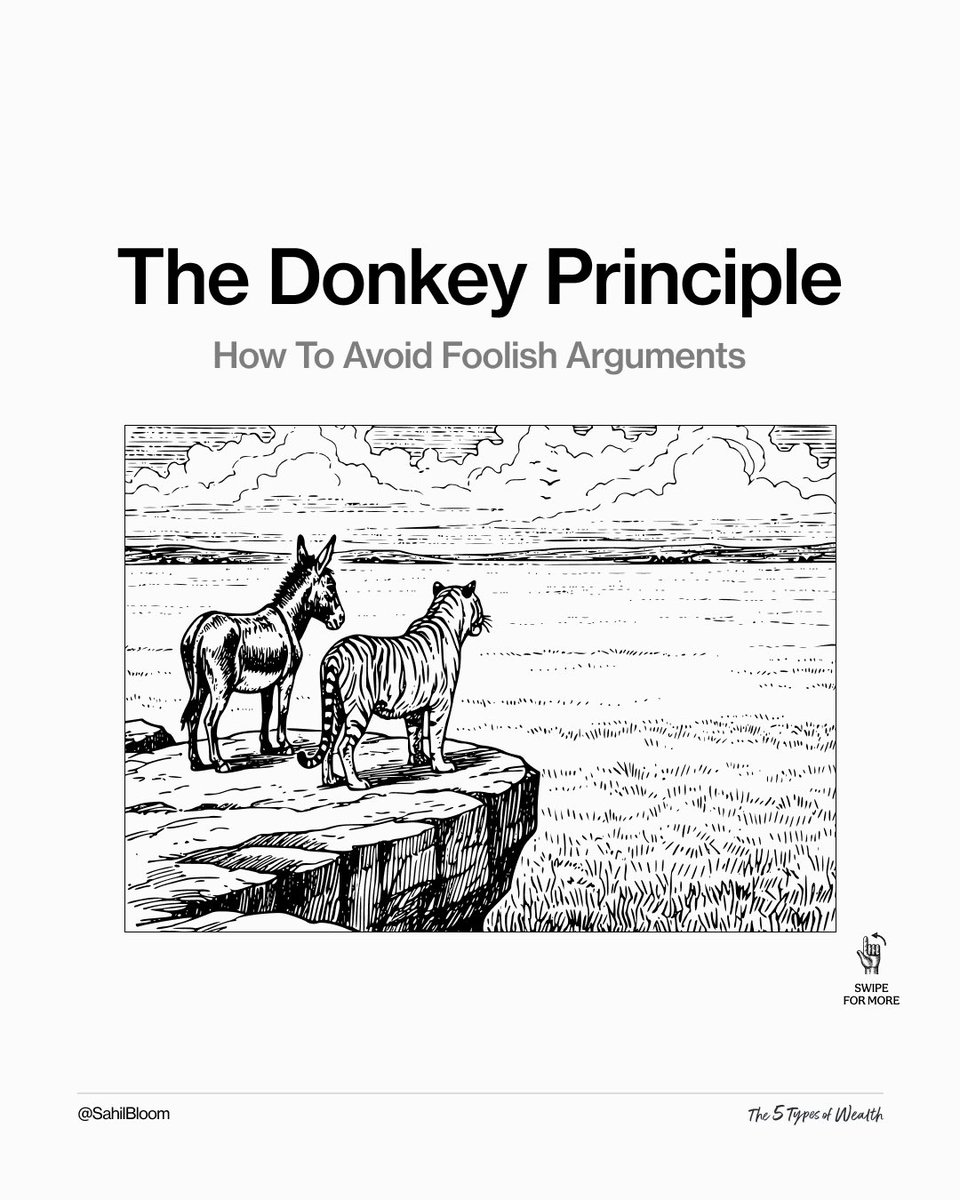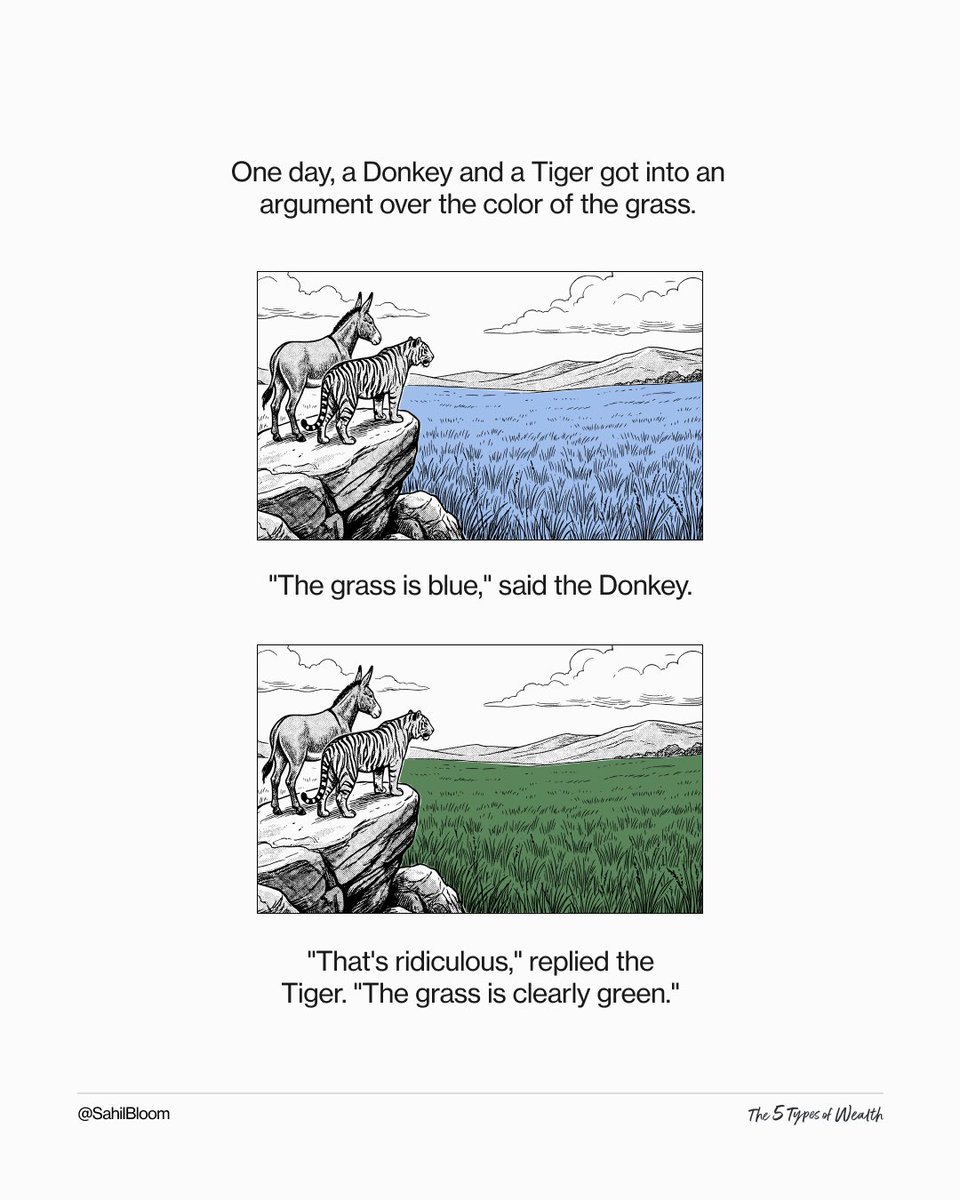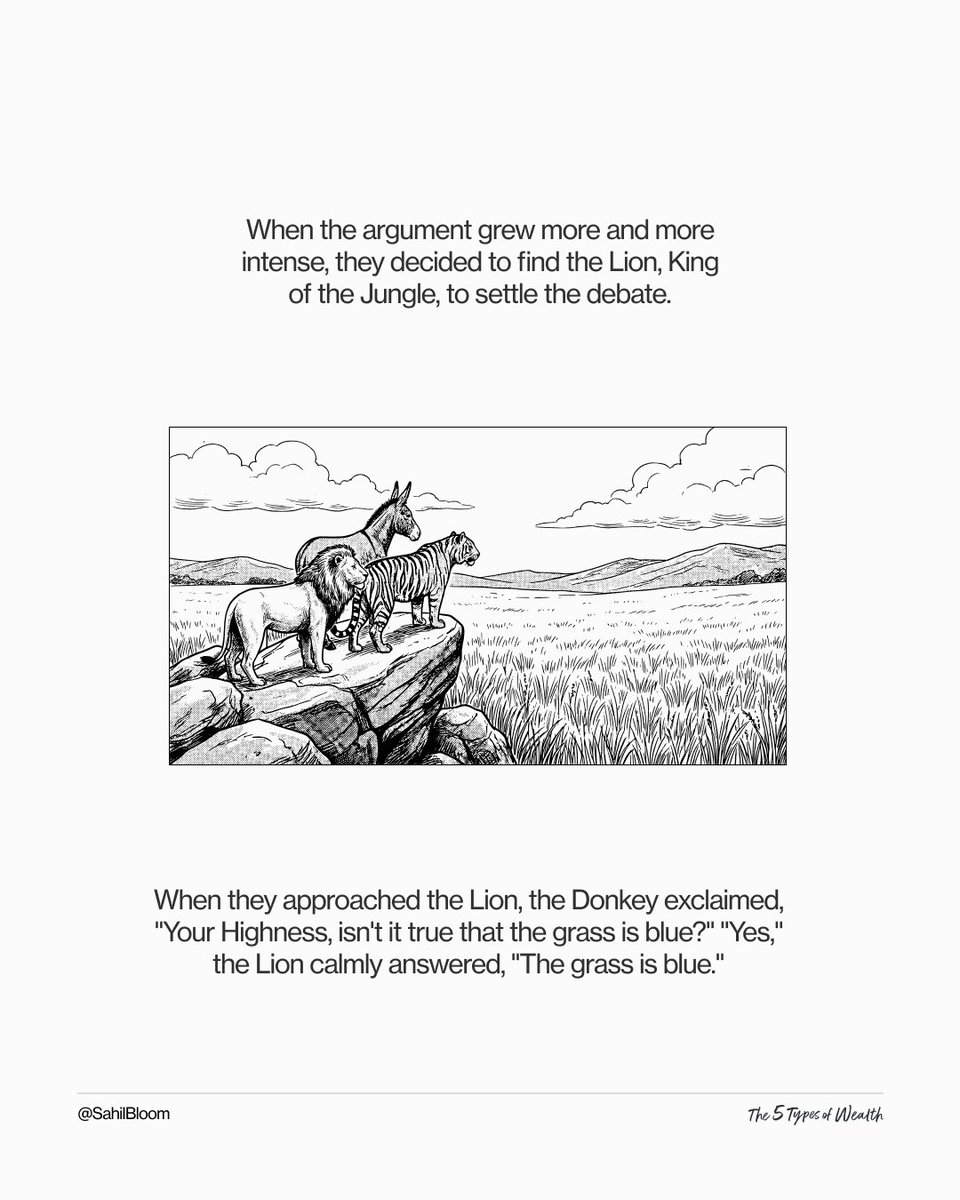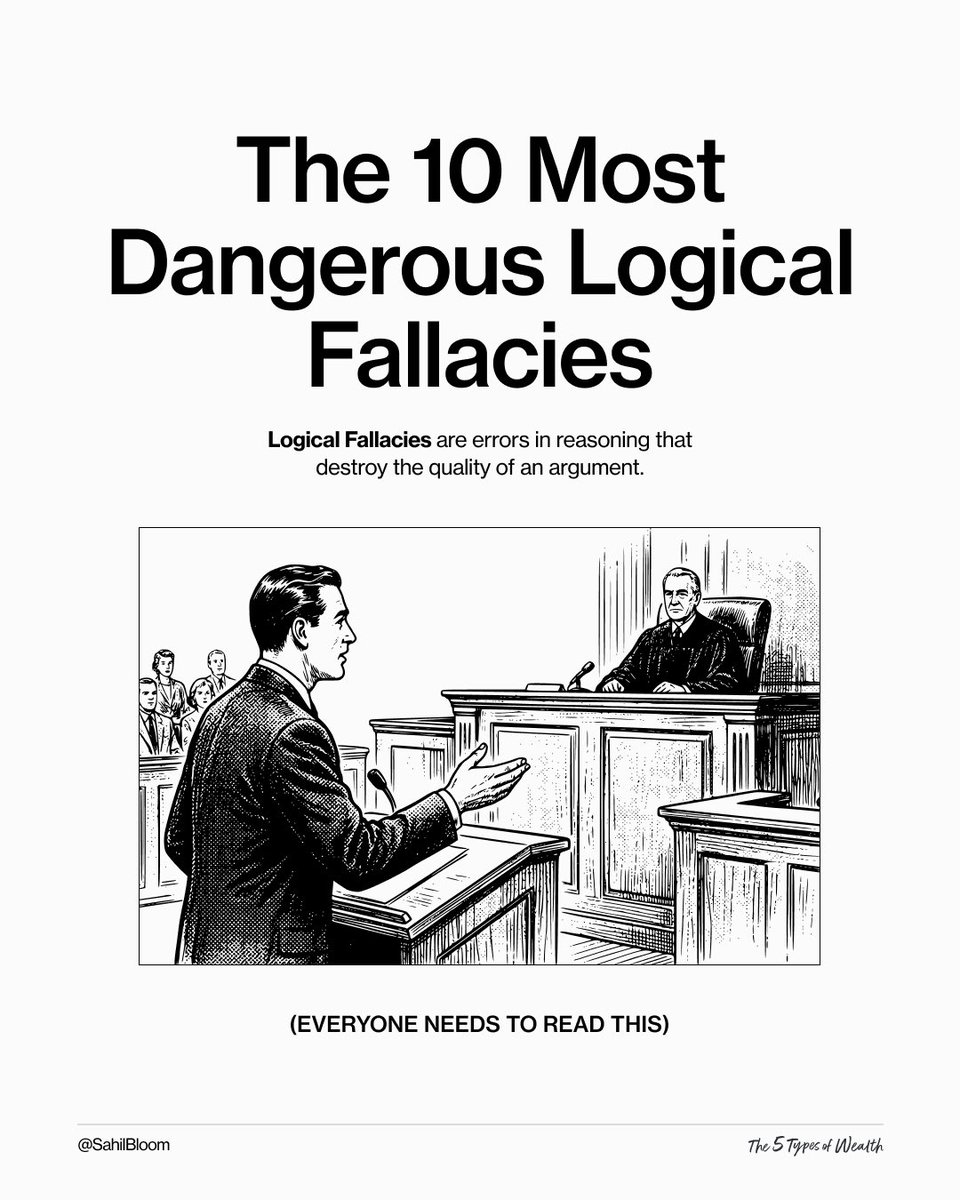Second-Order Thinking 101
We live in a world of complex systems that punish simple, linear thinking. The greatest minds consistently use second-order thinking to solve problems.
But what is "second-order thinking" and how does it work?
Here's Second-Order Thinking 101!
👇👇👇
We live in a world of complex systems that punish simple, linear thinking. The greatest minds consistently use second-order thinking to solve problems.
But what is "second-order thinking" and how does it work?
Here's Second-Order Thinking 101!
👇👇👇

1/ First, a few definitions.
First-order thinking focuses exclusively on solving an immediate problem, without regard for any potential consequences.
To paraphrase the words of the great @HowardMarksBook, it is "simplistic and superficial, and just about everyone can do it."
First-order thinking focuses exclusively on solving an immediate problem, without regard for any potential consequences.
To paraphrase the words of the great @HowardMarksBook, it is "simplistic and superficial, and just about everyone can do it."
2/ Second-order thinking moves beyond the immediate problem and considers the multiple layers of implications and consequences of a given decision.
In short, it looks past the simple first-order effects of a decision and deeply examines the second, third, and Nth-order effects.
In short, it looks past the simple first-order effects of a decision and deeply examines the second, third, and Nth-order effects.
3/ But what does that really mean?
A simple analogy is of a rock being thrown into a lake.
The rock is your decision or action. It disturbs the calm and creates an impact.
The first impact (or splash) is the first-order effect. But it doesn't stop there, it spreads outwards.
A simple analogy is of a rock being thrown into a lake.
The rock is your decision or action. It disturbs the calm and creates an impact.
The first impact (or splash) is the first-order effect. But it doesn't stop there, it spreads outwards.

4/ The chain of subsequent events (or ripples) are the second, third, and Nth-order effects.
When you make a decision or take action, it is critical to consider those ripples, not just the initial splash.
Failing to do so may lead to unintended consequences and new problems.
When you make a decision or take action, it is critical to consider those ripples, not just the initial splash.
Failing to do so may lead to unintended consequences and new problems.
5/ Second-order thinking is a mental tool that forces you to consider the unconsidered.
It is a superpower that we all have within us - it just requires intentionality.
Let's look at a few examples of where this might come into play and how you can implement it in your life.
It is a superpower that we all have within us - it just requires intentionality.
Let's look at a few examples of where this might come into play and how you can implement it in your life.
6/ In policymaking?
If you want an example of the dangers of first-order thinking, read my thread below on the Cobra Effect.
Problem: too many cobras.
Solution: offer a bounty for cobras.
Initial Outcome: fewer cobras.
Ultimate Outcome: more cobras!
If you want an example of the dangers of first-order thinking, read my thread below on the Cobra Effect.
Problem: too many cobras.
Solution: offer a bounty for cobras.
Initial Outcome: fewer cobras.
Ultimate Outcome: more cobras!
https://twitter.com/SahilBloom/status/1318926201772101632?s=20
7/ Policymakers tend to be poor second-level thinkers.
Some would suggest it is a function of the time horizons of re-election.
Or perhaps it is the lack of "skin in the game" as it relates to the second, third, and N-th order effects of their actions (h/t @nntaleb).
Some would suggest it is a function of the time horizons of re-election.
Or perhaps it is the lack of "skin in the game" as it relates to the second, third, and N-th order effects of their actions (h/t @nntaleb).
8/ One salient example: corporate bailouts.
The first-order thinker may say bailouts are good - they save jobs (for now), maintain service, etc.
But the second-order thinker looks further - what impact does a government backstop have on future executive risk appetite?
The first-order thinker may say bailouts are good - they save jobs (for now), maintain service, etc.
But the second-order thinker looks further - what impact does a government backstop have on future executive risk appetite?
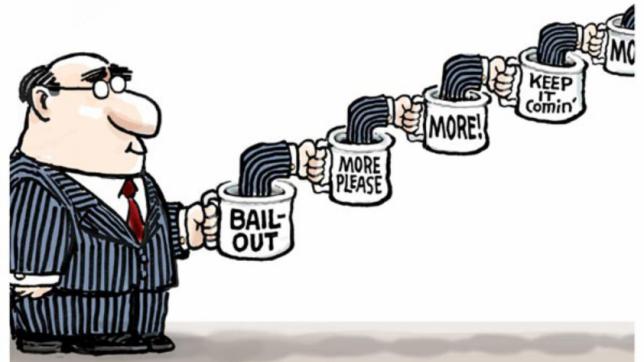
9/ Another example: money printing and extraordinary Fed intervention.
The first-order thinker may say this is good - it prevents economic suffering.
But the second-order thinker looks further - what distributional impacts does this have on society?
The first-order thinker may say this is good - it prevents economic suffering.
But the second-order thinker looks further - what distributional impacts does this have on society?
https://twitter.com/SahilBloom/status/1309145743756865536?s=20
10/ The second-order thinker takes time to examine beyond the positive first-order effects to evaluate the action in the context of all of the later effects.
To quote @ShaneAParrish, they diligently ask, "And then what?"
To quote @ShaneAParrish, they diligently ask, "And then what?"
https://twitter.com/ShaneAParrish/status/1323257399776550912?s=20
11/ The examples used are not intended as indictments of these solutions.
These are complex issues.
The point is, when dealing with complex issues, you have to adopt second-order thinking in order to increase the probability of a good outcome.
These are complex issues.
The point is, when dealing with complex issues, you have to adopt second-order thinking in order to increase the probability of a good outcome.
12/ Second-order thinking is like a cheat code for life.
The best business operators are said to think five moves ahead - that is second-order thinking at work.
The best investors are said to think on a more powerful level - that is second-order thinking at work.
The best business operators are said to think five moves ahead - that is second-order thinking at work.
The best investors are said to think on a more powerful level - that is second-order thinking at work.

13/ So how do you become a second-order thinker?
The @ShaneAParrish "and then what?" method is a great start.
From there, keep asking questions. Drill down deeper. Go down the rabbit hole!
As @HowardMarksBook wrote, "Second-level thinking is deep, complex, and convoluted."
The @ShaneAParrish "and then what?" method is a great start.
From there, keep asking questions. Drill down deeper. Go down the rabbit hole!
As @HowardMarksBook wrote, "Second-level thinking is deep, complex, and convoluted."
14/ Becoming a second-order thinker will provide you with asymmetric opportunities for success. It is critical to achieving non-linear outcomes.
Why? It is hard to do, so very few people will do it.
Think on a higher level. The air is thinner up there.
Why? It is hard to do, so very few people will do it.
Think on a higher level. The air is thinner up there.
15/ So that was Second-Order Thinking 101. For more, I highly recommend the below resources.
Second-Order Thinking by @farnamstreet: fs.blog/2016/04/second…
Memo by @HowardMarksBook: oaktreecapital.com/docs/default-s…
The Most Important Thing by @HowardMarksBook: amazon.com/gp/product/023…
Second-Order Thinking by @farnamstreet: fs.blog/2016/04/second…
Memo by @HowardMarksBook: oaktreecapital.com/docs/default-s…
The Most Important Thing by @HowardMarksBook: amazon.com/gp/product/023…
16/ For more educational threads on business, money, finance, and economics, check out my meta-thread below.
This topic leads nicely into future threads on externalities, systems thinking, and more. Turn on post notifications so you don't miss out!
This topic leads nicely into future threads on externalities, systems thinking, and more. Turn on post notifications so you don't miss out!
https://twitter.com/SahilBloom/status/1284583099775324161?s=20
• • •
Missing some Tweet in this thread? You can try to
force a refresh





